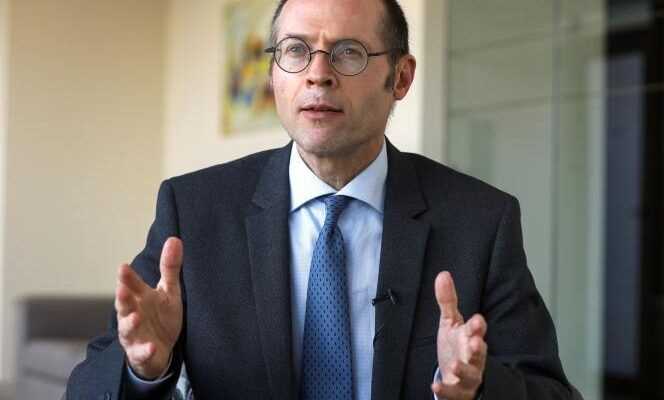At the end of a twelve-day mission in Lebanon, Olivier De Schutter, United Nations Special Rapporteur on Extreme Poverty and Human Rights, denounced, Friday, November 12, “Inaction” leaders in the face of the rapid impoverishment of society.
You qualify the Lebanese tumble as a “fabricated crisis”. Was the collapse preventable?
The financial crisis, the result of the collapse of a “Ponzi scheme”, which led to the brutal devaluation of the Lebanese pound, was preventable. But Lebanon is facing three other crises, which have clearly affected its ability to respond: the massive presence of Syrian refugees [depuis 2011], the Covid-19 crisis and the explosion at the port of Beirut [en août 2020]. In addition, the political response is not up to par. In my meetings with the ministers, I have noticed, in general, that the reflex is to ask for increased support from the international community, and sometimes to identify in the Syrian refugees [1,5 million, soit 25 % de la population] of convenient scapegoats. However, it is urgent to mobilize resources inside Lebanon: the country can improve the collection of taxes and the financing of public services. Structural reforms will allow the country to rebound and become less dependent on international aid.
Have the leaders not taken the measure of the ongoing collapse?
I believe they underestimate the feeling of the people of being abandoned and the impatience of the international community, which awaits reforms. The current government was not formed until September. He is paralyzed by Judge Bitar’s investigation [entravée par de multiples forces politiques, Hezbollah en tête] on the explosion at the port, and by the crisis with the Gulf countries [fin octobre, l’Arabie saoudite a retiré son ambassadeur et expulsé le représentant libanais]. I got the impression that many ministers are each working in their lane – to use a swimming metaphor – and not as a team. We need a functioning government to undertake reforms, without waiting for the elections [prévues en 2022] or financial support from the International Monetary Fund.
You talk about improving tax collection, but the country does not have a fair tax system, and resistance to paying taxes is diffuse …
We must change the way the population relies on the state. Lebanon does not have a welfare state system, and the ratio of taxes to GDP is very low compared to countries in the same category. The first reform must be that of taxation: it is a question of both that a larger share of the State’s public revenue comes from direct taxes on wealth and companies, and that the share of indirect taxes, like VAT, be reduced in proportion. We need a much more progressive system of taxation.
You have 45.88% of this article to read. The rest is for subscribers only.
